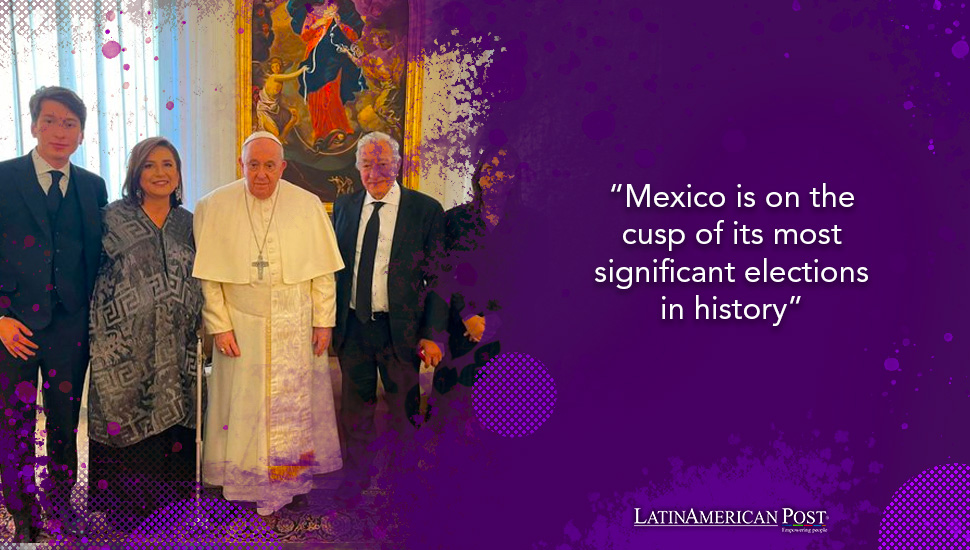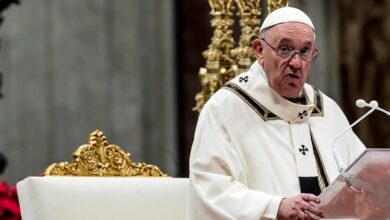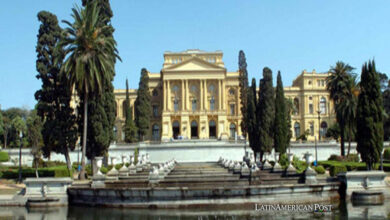High Hopes, Low Expectations: Mexico’s Presidential Meetings with Pope Offer Little Solution

As Mexico’s presidential candidates meet with Pope Francis, the grand spectacle offers little concrete solutions to the nation’s deep-seated economic woes and endemic violence, reflecting a broader Latin American struggle with similar issues.
In a recent turn of events that has captured the attention of many, Pope Francis hosted two of Mexico’s presidential candidates, Xóchitl Gálvez of the opposition and Claudia Sheinbaum of the ruling party, at the Vatican. These meetings, heralded by some as a significant moment of moral and spiritual reflection, have left others skeptical about their actual impact on Mexico’s chronic problems of violence and economic instability. Despite the high-profile nature of these engagements, there seems to be a glaring absence of substantial solutions emerging from these conversations, mirroring a pattern seen across many Latin American countries grappling with similar challenges.
Mexico’s history is replete with periods of turbulence, marked by economic crises and a longstanding battle against organized crime and corruption. These issues are deeply ingrained in the fabric of Mexican society, with roots stretching back decades if not centuries. The nation’s struggle symbolizes a more significant Latin American predicament, where many countries face the dual demons of economic volatility and pervasive violence. While symbolically important, the meetings with Pope Francis highlight the limitations of such gestures in addressing the systemic and structural problems underpinning these crises.
The candidacies of Gálvez and Sheinbaum, representing the opposition Fuerza y Corazón por México alliance and the ruling Morena party, respectively, come at a critical juncture. Mexico is on the cusp of its most significant elections in history, with a staggering 97 million people eligible to vote for a wide range of federal positions, including the presidency. The political landscape is charged with anticipation and hope for change. Yet, there’s a palpable sense of skepticism about the potential for fundamental transformation, especially in terms of tackling the nation’s economic disparities and the scourge of violence that has left countless communities in mourning.
Critical Juncture in Mexican Politics
Gálvez’s meeting with the Pope, where she reaffirmed her faith and discussed the “culture of waste” and various global crises, and Sheinbaum’s encounter, where she expressed admiration for Francis’s humanist thought, are undoubtedly significant on a personal level for the candidates. However, the question remains: how will these discussions translate into actionable policies and strategies that can address Mexico’s pressing issues?
This skepticism is not unwarranted. Latin America’s history is a testament to the region’s complexity in combating economic and social ills. Countries like Venezuela, with its economic meltdown and humanitarian crisis, or Honduras and El Salvador, with their high levels of violence and gang activity, illustrate the daunting challenges facing leaders in the region. However, meaningful engagements with Pope Francis underscoring the moral dimensions of leadership and governance must provide a roadmap for the monumental tasks ahead for Mexico’s next president.
Moreover, the Vatican’s silence on these meetings underscores the delicate balance the Holy See strives to maintain in its relations with nations worldwide. While the Pope’s moral and ethical influence is undeniable, the Vatican typically refrains from direct involvement in the political machinations of individual countries, focusing instead on broader themes of peace, social justice, and the common good. While respectful of national sovereignty, this approach further dilutes any expectation that these meetings could yield specific solutions to Mexico’s dilemmas.
Symbolic Weight vs. Practical Solutions
As Mexico marches towards its historic elections, the meetings with Pope Francis serve as a reminder of the international interest in the country’s future direction. Yet, they also highlight the limitations of external influences on domestic challenges deeply rooted in historical, social, and economic complexities. The candidates’ visits to the Vatican, while adding a layer of international moral engagement to their campaigns, do not offer the concrete solutions Mexico urgently needs to move forward.
Also read: Fostering More Powerful Ties: Why Latin America and Africa Must Unite for a Prosperous Future
While the meetings between Mexico’s presidential candidates and Pope Francis at the Vatican carry symbolic weight, they expose the gap between high-level diplomatic engagements and the gritty reality of Mexico’s internal challenges. Though potentially enriching on a personal and spiritual level for the candidates, the conversations do not seem to bridge the divide between the moral leadership offered by religious figures and the pragmatic, often hard-nosed, policy-making required to tackle economic instability and violence. As Mexico and similar Latin American countries continue to search for paths out of their respective crises, it becomes increasingly clear that the solutions lie not in symbolic gestures but in the hard work of systemic reform and the unwavering pursuit of justice and economic equity.




